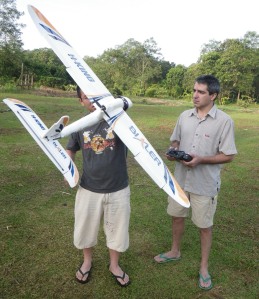Many of us hear the word drone and cringe; we picture the military using drones to drop bombs and other negative things. But recently drones are become cheaper and cheaper as the technology becomes commonplace, so what better path for the drone to take than to aide in conservation!
Conservation Drones (I’d recommend following their blog to keep up on the busy world of drone creating) has been designing drones that can fly for about 50 minutes around 25 kilometers and can take photos or videos to help identify specific species or even things like orangutan nests. Drones are cheap, effective and best of all they are easy to use.

When I was in high school I followed an online class from Yale, I believe (maybe Harvard?) about biotechnology in medicine. A lesson that was drilled into my head again and again that technology is not effective unless it is widely accessible. In biotechnology it meant that if you invented an artificial heart it’s useless if it costs $5 million, because then it can’t help any but a very select few. It must be remembered that with conservation most everything is funded by donation, so with conservation drones being as affordable as they are (no, sorry I don’t have specific prices, but I heard on BBC radio this morning that people have begun to 3D print micro drones) on top of being user friendly they are quite the innovation.
Drones are being flow over vast amounts of rain forest to track populations of rhinos, elephants and even orangutans. It was speculated that photos from drones would not be high quality enough to able to identify orangutan nests from, but luckily thats wrong! They take arial photos and videos which make it quite easy to identify orangutan nests from the air.

The Orangutan Conservancy was one of the first organizations to support Lian Pin Koh and Serge Wich, the inventors of the Conservation Drone. It was originally conceived to aide in orangutan research, but has since been used in a plethora of different conservation efforts. The astoundingly high quality photos can be used to detect logging, fires and even small roads that can lead to much more attentive conservation.

